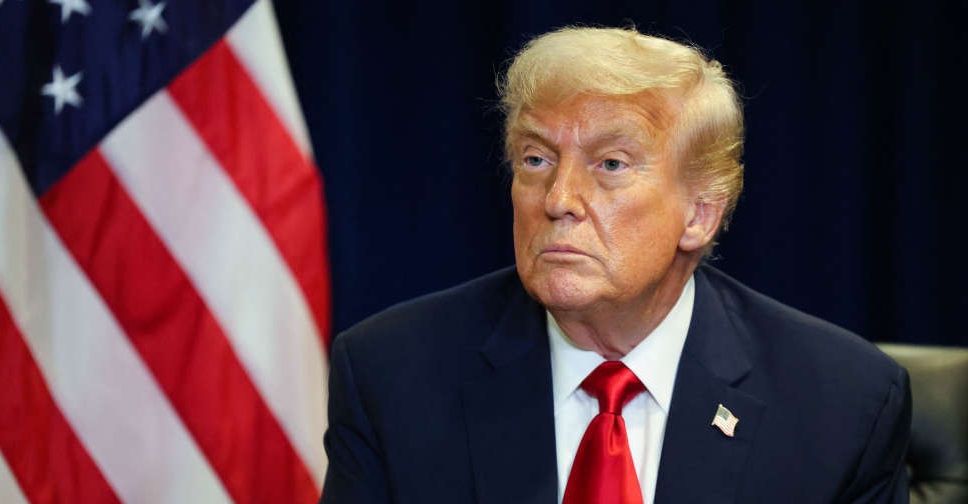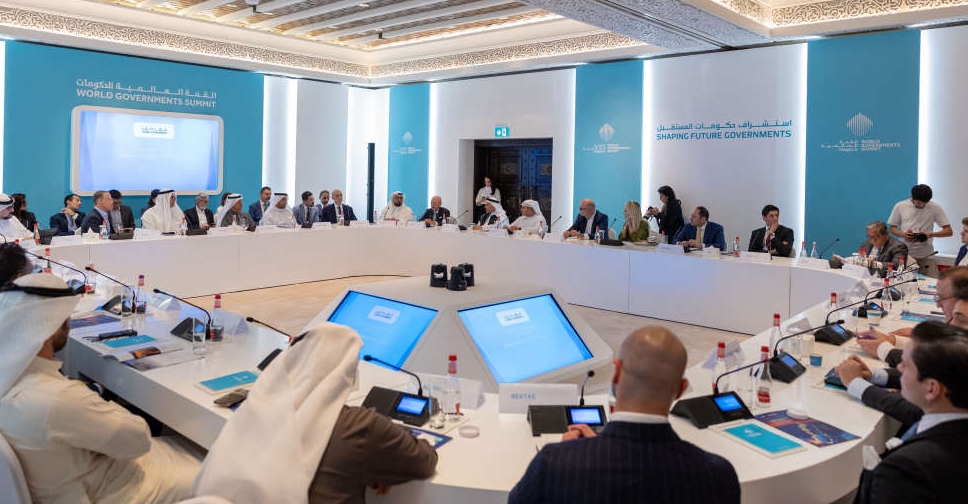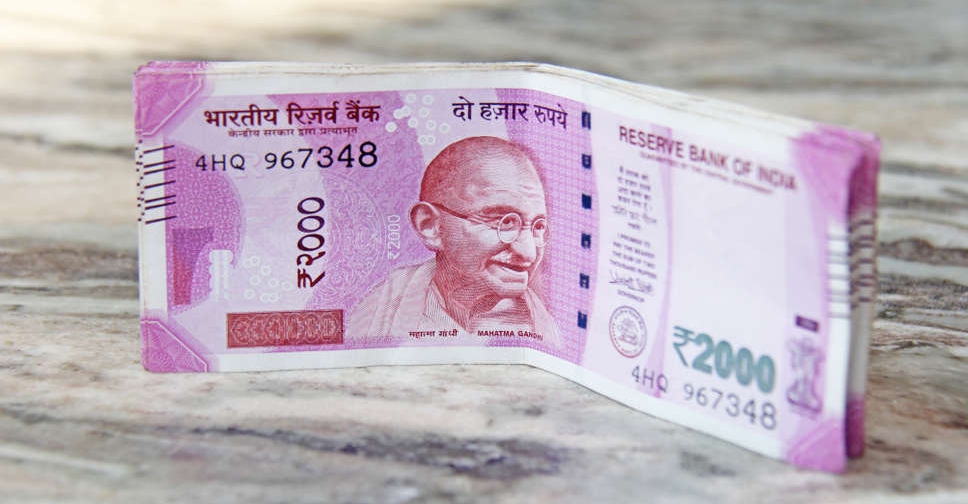
President Donald Trump unleashed a fresh round of punishing tariffs on a broad range of imported goods on Thursday, saying the US will impose 100 per cent duties on branded drugs and 25 per cent tariffs on heavy-duty trucks, among other import tariffs, starting next week.
The new 100 per cent tariff on any branded or patented pharmaceutical product will apply to all imports unless the company has already broken ground on building a manufacturing plant in the United States, Trump said.
Tariffs have been a feature of Trump's second term, with duties on trading partners ranging from 10 per cent to 50 per cent and other targeted tariffs on a wide variety of products, casting a shadow over the global economic outlook and paralyzing business decision-making.
The announcements, made on Truth Social, did not include details about whether the new levies would apply on top of national tariffs or whether economies with trade deals such as the European Union and Japan would be exempted. Tokyo said it was still analyzing the potential impact of the new measures.
Trump also said he would start charging a 50 per cent tariff on kitchen cabinets and bathroom vanities and a 30 per cent tariff on upholstered furniture, with all the new duties to take effect from October 1.
"The reason for this is the large scale 'FLOODING' of these products into the United States by other outside Countries," Trump said on Truth Social of the tariffs on household goods.
Stocks of pharmaceutical companies across Asia sank as investors reacted to the news, with Japan's Sumitomo Pharma tumbling 5 per cent, Hong Kong's Hang Seng Biotech Index down about 2.5 per cent, and Australia's plummeting to a six-year-low.
The new actions are seen as part of the Trump administration's shift to better-established legal authorities for its tariff actions, given the risks associated with a case before the Supreme Court on the legality of his sweeping global tariffs.
The Pharmaceutical Research and Manufacturers of America, an industry group, said companies "continue to announce hundreds of billions in new US investments. Tariffs risk those plans".
The Trump administration has opened a dozen probes into the national security ramifications of imports of wind turbines, airplanes, semiconductors, polysilicon, copper, timber and lumber and critical minerals to form the basis of new tariffs.
Trump this week announced new probes into personal protective equipment, medical items, robotics and industrial machinery.
FOREIGN POLICY TOOL
Trump has made the levies a key foreign policy tool, using them to renegotiate trade deals, extract concessions and exert political pressure on other countries.
Trump's administration has been touting tariffs as a significant revenue source. Treasury Secretary Scott Bessent says Washington could collect $300 billion by the end of the year, more than triple its annual tariff revenue in recent years.
Trump previously imposed national security tariffs on steel and aluminum and derivatives, light-duty autos and parts, and copper.
The Trump administration's trade deals with Japan, the EU, and the United Kingdom include provisions that cap tariffs for specific products such as autos, semiconductors and pharmaceuticals, which means the new higher national security tariffs likely won't raise it above agreed rates.
Japan is assessing how the new measures relate to its deal, the country's chief trade negotiator Ryosei Akazawa told a press conference on Friday.
He stressed, however, that tariffs imposed on Japanese drugs would not be higher than those from other countries as Tokyo had secured most-favoured nation status on those items and others.
Trump said the new heavy-duty truck tariffs were to protect manufacturers from "unfair outside competition" and said the move would benefit companies such as Paccar-owned Peterbilt and Kenworth and Daimler Truck-owned Freightliner.
The US pharmaceutical trade group said earlier this year that 53 per cent by value of the $85.6 billion in ingredients used in medicines consumed in the United States was manufactured in the US with the remainder from Europe and other US allies.
The US Chamber of Commerce earlier urged the department not to impose new truck tariffs, noting the top five import sources are Mexico, Canada, Japan, Germany, and Finland "all of which are allies or close partners of the United States posing no threat to US national security."
Mexico is the largest exporter of medium- and heavy-duty trucks to the United States. A study released in January said imports of those larger vehicles from Mexico have tripled since 2019.
Trump in August had promised to impose new furniture tariffs, saying it "will bring the Furniture Business back to North Carolina, South Carolina (and) Michigan.
Furniture and wood products manufacturing employment in the US has halved since 2000 to around 340,000 today, according to government statistics.
The United States imported about $25.5 billion in furniture in 2024, up 7 per cent over 2023, with about 60 per cent of those imports coming from Vietnam and China, according to Furniture Today, a trade publication.
INFLATION FEARS
Higher tariffs on commercial vehicles could put pressure on transportation costs just as Trump has vowed to reduce inflation, especially on consumer goods such as groceries.
Tariffs could also affect Chrysler-parent Stellantis, which produces heavy-duty Ram trucks and commercial vans in Mexico. Sweden's Volvo Group is building a $700 million heavy-truck factory in Monterrey, Mexico, due to start operations in 2026.
Mexico is home to 14 manufacturers and assemblers of buses, trucks, and tractor trucks, and two manufacturers of engines, according to the US International Trade Administration.
The country is also the leading global exporter of tractor trucks, 95 per cent of which are destined for the United States.
"We need our Truckers to be financially healthy and strong, for many reasons, but above all else, for National Security purposes!," Trump added.
Mexico opposed new tariffs, telling the Commerce Department in May that all Mexican trucks exported to the United States have on average 50 per cent US content, including diesel engines.
Last year, the United States imported almost $128 billion in heavy vehicle parts from Mexico, accounting for approximately 28 per cent of total US imports, Mexico said.
The Japanese Automobile Manufacturers Association also opposed new tariffs, saying Japanese companies have cut exports to the United States as they have boosted US production of medium- and heavy-duty trucks.



 Creative industries 'key to future growth', WGS-FTI report says
Creative industries 'key to future growth', WGS-FTI report says
 TECOM Group posts strong 2025 results as revenues and profits rise
TECOM Group posts strong 2025 results as revenues and profits rise
 Family businesses urged to rethink investment, philanthropy at Dubai summit
Family businesses urged to rethink investment, philanthropy at Dubai summit
 UAE-Vietnam CEPA enters into force
UAE-Vietnam CEPA enters into force
 Indian rupee, stocks soar in relief rally after trade deal with US
Indian rupee, stocks soar in relief rally after trade deal with US







